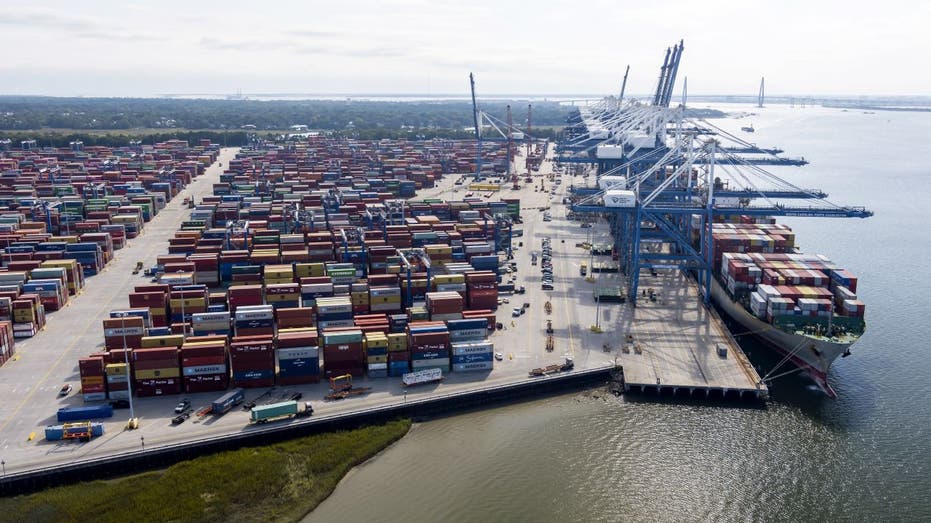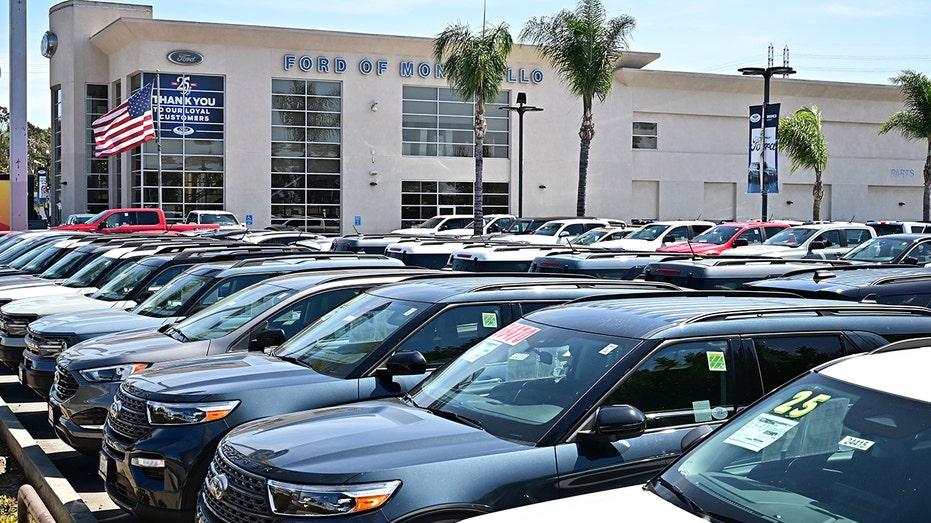Tariff-induced price hikes, trade worries highlighted in Fed's Beige Book
The Fed's Beige Book noted there is 'pervasive' uncertainty over international trade policy
Fed Chair Powell signals tariff risk, inflation
Federal Reserve Chairman Jerome Powell said President Donald Trump’s tariffs are larger than expected, raising the risks of further inflation.
A new report from the Federal Reserve showed that U.S. businesses are reporting increased costs due to tariffs, which they expect to largely pass on to consumers in the form of higher prices.
The Federal Reserve on Wednesday released its latest edition of the Beige Book, which summarizes economic conditions in each of the Fed's 12 regional districts and is published eight times a year. Uncertainty over international trade policy is "pervasive" and concerns over tariffs on imported goods, which President Donald Trump has increased in his effort to rebalance global trade, are causing costs to rise for firms and consumers alike.
"Most Districts noted that firms expected elevated output cost growth resulting from tariffs. Many firms have already received notices from suppliers that costs would be increasing," the Fed's national summary said. "Firms reported adding tariff surcharges or shortening pricing horizons to account for uncertain trade policy."
"Most businesses expected to pass through additional costs to consumers. However, there were reports about margin compression amid increased costs, as demand remained tepid in some sectors, especially for consumer-facing firms," it added.
TRUMP HINTS AT CUTTING CHINA TARIFFS 'SUBSTANTIALLY' FROM 145%

Tariffs are taxes on imported goods which are paid by importers who often pass the higher costs on to consumers through higher prices. (Sam Wolfe/Bloomberg via Getty Images / Getty Images)
In the Boston district, the Fed noted that "retail and manufacturing contacts alike cautioned that cost increases linked to tariffs, although still to be determined, could result in significant passthrough to their output prices."
"Expected passthrough rates were substantial, with over half of manufacturers projecting a complete passthrough, mostly without lags. One manufacturer shortened the duration of its price quotes to 30 days in anticipation of the need to adjust prices rapidly," it continued.
The Boston district also noted that "travel from Canada declined noticeably, and contacts feared that summer travel from Europe and China could suffer as well because of negative reactions to U.S. tariff policies."
TRUMP'S TARIFFS PROJECTED TO INCREASE UNEMPLOYMENT, BUT ESCAPE MASS LAYOFFS: ALLIANZ

Auto dealers reported a surge in demand as consumers looked to make purchases before tariffs took effect and raised prices. (Frederic J. Brown/AFP via Getty Images / Getty Images)
The auto industry has seen at least a short-term boost from the tariff uncertainty, as consumers rushed to buy cars ahead of 25% tariffs on imported autos taking effect, according to reports from several Fed districts.
"Auto dealers reported a strong increase in sales after a slight increase last period. Multiple contacts highlighted that sales hit record highs in March. However, all our auto industry contacts attributed this boost to a pulling forward of vehicle purchases to get ahead of potential tariffs and do not expect the strength in demand to continue," the Philadelphia Fed wrote.
TREASURY SECRETARY BESSENT SAYS THERE'S OPPORTUNITY FOR A 'BIG DEAL' WITH CHINA

Homebuilders noted cost increases due to tariffs on construction materials. (Angus Mordant/Bloomberg via Getty Images / Getty Images)
Homebuilders in multiple Fed districts noted tariffs will increase construction costs and cause a slowdown in demand due to the uncertainty.
Tariffs have also had an impact on the shipping industry. The Richmond Fed noted that one of the ports in its district reported an "unexpected and disappointing" 25% decline in month-over-month export shipments.
The Trump administration's plan to levy a port call fee on Chinese ships to support domestic shipbuilding was also noted as a source of cost pressures.
GET FOX BUSINESS ON THE GO BY CLICKING HERE
"Port contacts were particularly concerned about the proposed port call tax on Chinese vessels which, by their estimates, could quadruple cargo handling costs. Some ports received multimillion-dollar tariff bills on Chinese cranes that were already ordered and enroute as tariffs were enacted and are now subject to the tariff," the Richmond Fed wrote.




















